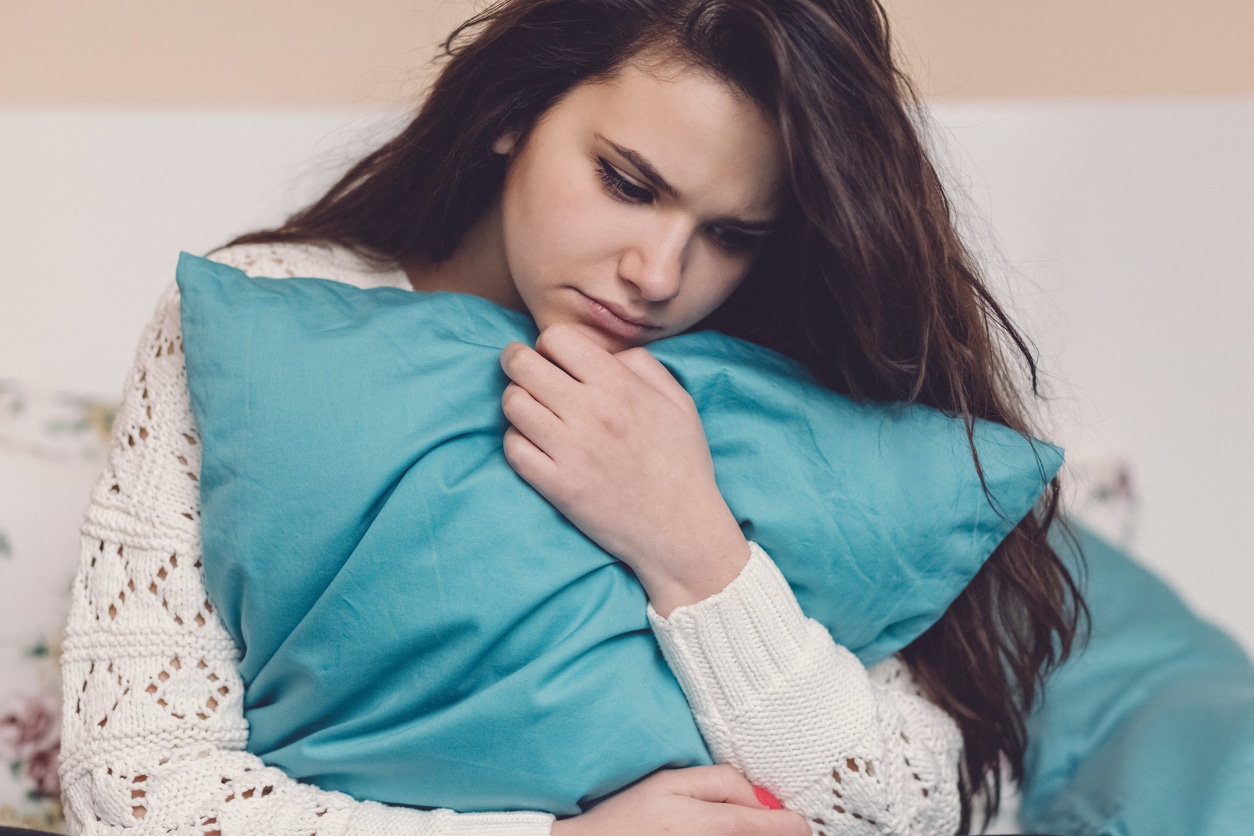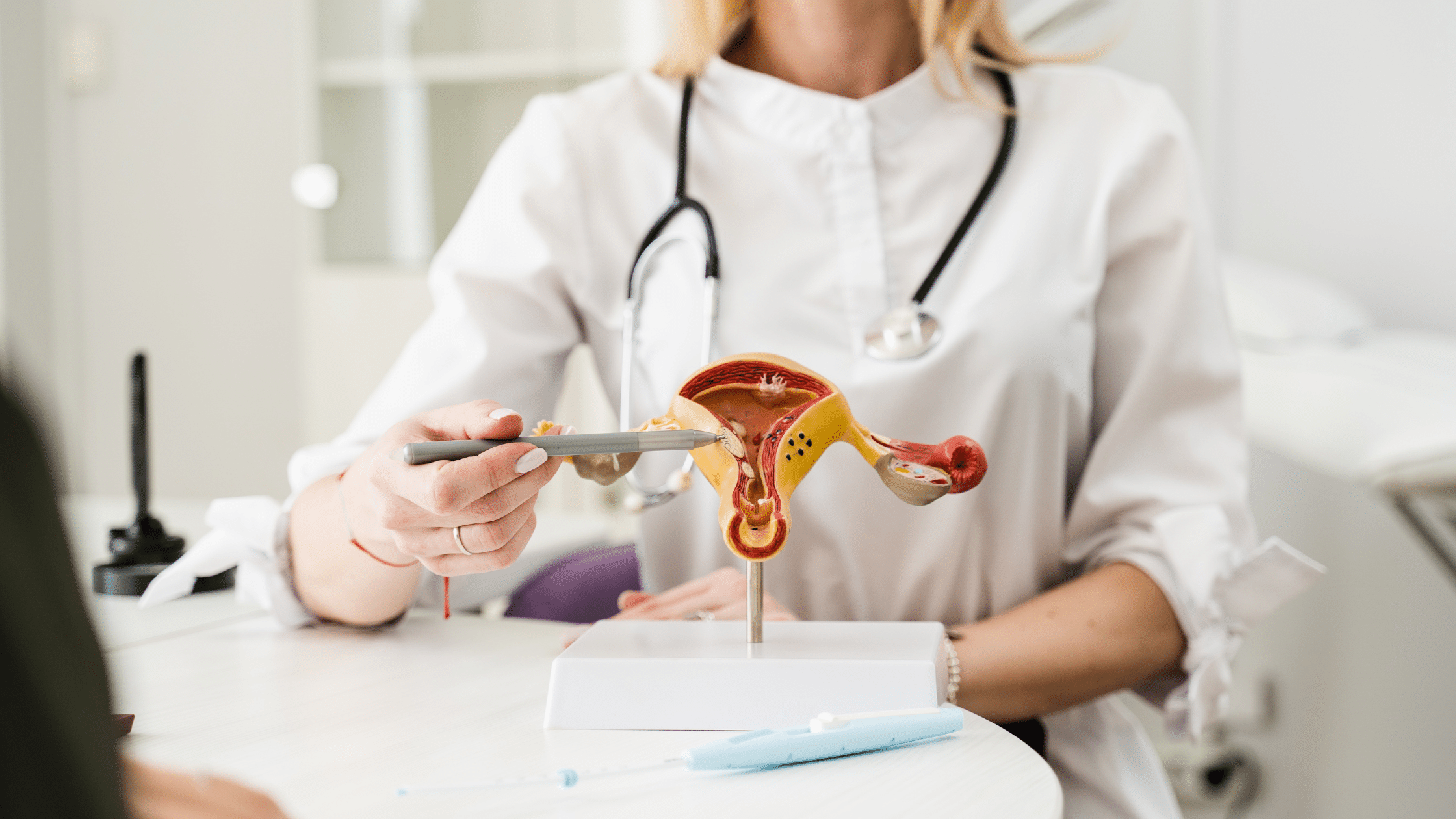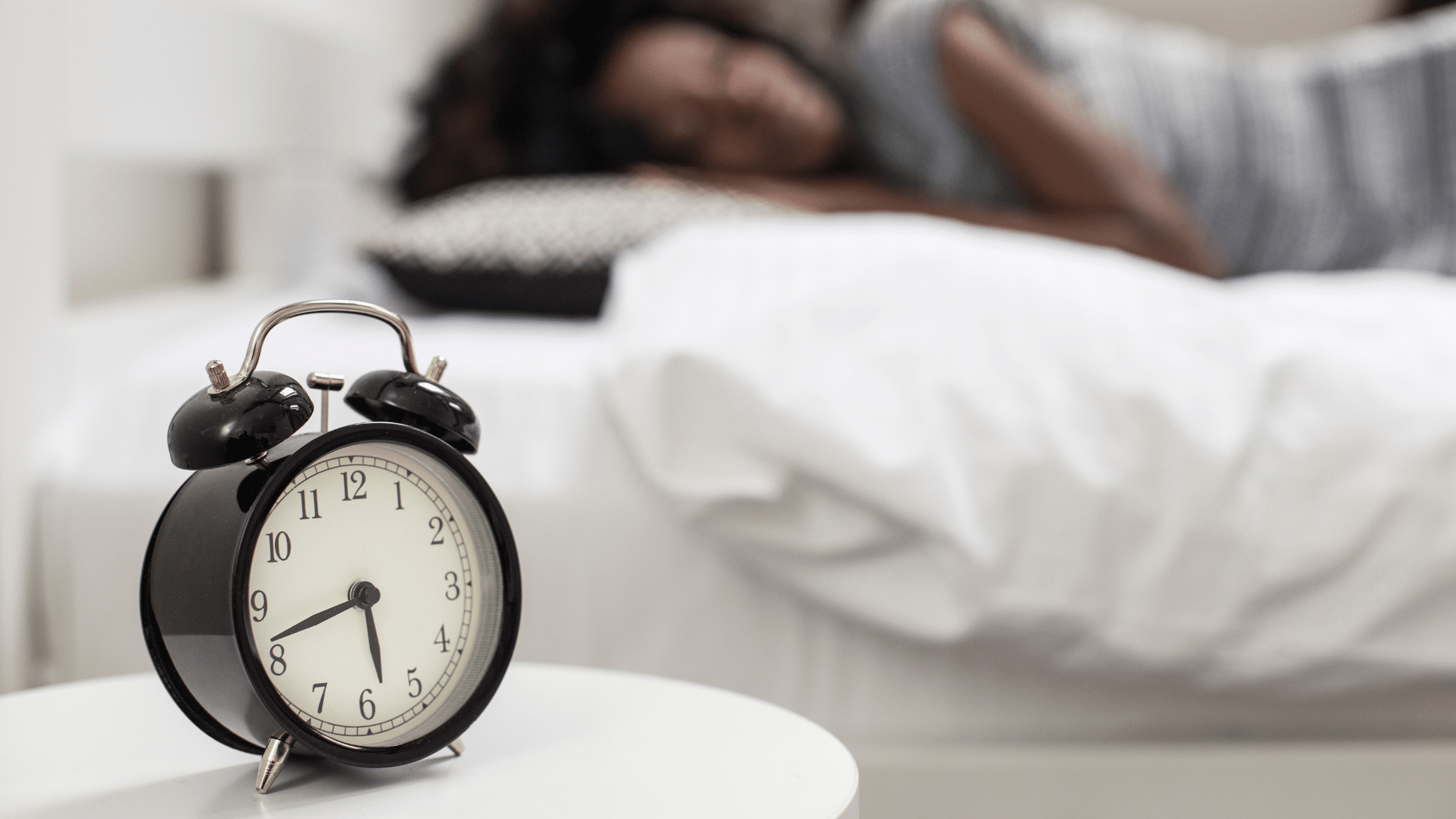At the Endometriosis Treatment Center of America, we believe that your health should always be…

Endometriosis & Teens: Frequently Asked Questions
Life as a teenager can be overwhelming. Between balancing classes, extracurricular activities, and friendships—being a teenager isn’t easy. On top of that, many girls experience major hormonal changes and their first menstrual cycle during their teenage years. As you continue to develop, you may experience discomfort during your period. But, this pain shouldn’t be debilitating.
If you’re experiencing painful periods, it can be challenging to speak with someone about it. However, the pain you’re suffering from may be from endometriosis. At the Endometriosis Treatment Center of America, we understand the difficulties of facing agonizing periods as a young person. In this blog, learn about endometriosis, and what you can do to find relief.
What Is Endometriosis?
Inside the uterus, there is a protective lining called the endometrium. Around every 28 days, your body prepares for the possible fertilization of an egg. If no fertilized egg attaches to the lining, the endometrium is shed, which leads to your monthly menstrual cycle.
In cases of endometriosis, the endometrium grows outside of the uterus. The tissue commonly grows on the ovaries, fallopian tubes, ligaments around the uterus, and lining of the pelvic cavity. As this tissue builds up and attempts to shed, like it would in the uterus, it becomes trapped, creating inflammation and irritation. The misplaced tissue can build up over time, and create cysts on the ovaries or scar tissue and adhesion or other organs that may affect fertility (the natural ability to conceive a child).
What Are Signs of Endometriosis?
The most common signs of endometriosis are painful cramps and heavy periods. Some other common symptoms of endometriosis in teenagers include:
- Naseua
- Vomiting
- Pain while urinating
- Pain in the abdomen and back
- Fatigue
You’re more likely to be diagnosed if your mom or sister has the condition, if you got your period before age 11, if your periods last longer than 7 days, and if your periods happen more often than every 27 days. Every woman is different, and not all of these symptoms must be present for someone to be diagnosed with endometriosis.
How Painful Should Cramps Be?
It’s relatively normal to experience mild to moderate cramps on the first two days of your period. Beyond that, painful cramps shouldn’t occur in the later days of your period. Likewise, your cramps shouldn’t be debilitating, and shouldn’t impact your daily activities.
If your cramps cause you to miss school or sports practice, interfere with your social activities, and aren’t alleviated with pain medication, like Tylenol or Advil, you may have endometriosis. If you are experiencing painful periods, speak to your doctor or someone who you trust to find relief from your discomfort.
How Do You Diagnose Endometriosis?
Endometriosis can be difficult to diagnose, but that shouldn’t stop you from seeking treatment. If you’re experiencing symptoms, a gynecologist can help. A gynecologist is a doctor that specializes in the female reproductive system, and can accurately evaluate your symptoms and provide solutions to help your discomfort.
At your gynecologist appointment, you’ll discuss your pain and any other symptoms you may be experiencing. After that, they may order an ultrasound or MRI (magnetic resonance imaging) to look for any abnormal tissues or cysts that may have developed.
How Do You Treat Endometriosis?
If you’re experiencing painful periods, there is hope. There is currently no cure for endometriosis, but there are methods to help you manage your pain. At home, many women find relief with help from heat pads, exercise, and getting extra sleep. An endometriosis specialist can help you discover and practice the methods that work best for you and your lifestyle.
Depending on your age and the severity of your symptoms, a gynecologist may prescribe medication, physical therapy, or hormone therapy. In some cases, surgical removal of the excess lining may be beneficial if other treatment methods haven’t alleviated symptoms.
What Should I Do if I Think I May Have Endometriosis?
If you think you have endometriosis, don’t hesitate to speak with someone you trust about your symptoms. While period pain can feel isolating and uncomfortable to talk about, seeking help can drastically improve your daily life. Whether it’s your school nurse, mom, dad, aunt, sister, cousin, babysitter, or someone else who has your best interests at heart, they can help you determine the next steps.
At Endometriosis Treatment Center of America, we understand that endometriosis pain can be physically and mentally challenging. Our team of experts seeks to provide a comfortable, stress-free environment, so we can provide patient-centered care. We provide various solutions to endometriosis, including hormone therapies, robotic surgeries, and medications.
Find the Relief You Deserve at Endometriosis Treatment Center of America
Proudly servicing the Lake Orion and Birmingham areas in Michigan, our team can provide solutions for endometriosis, pelvic pain, infertility, painful intercourse, abnormal periods, painful urination, and more. With years of experience, our team works to treat the entire woman, so you can get back to living your life to the fullest. Call us at (248) 397-9129 or contact us online to schedule an appointment today!



